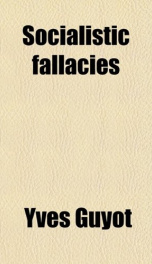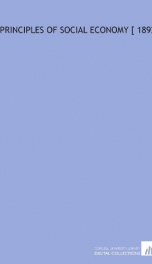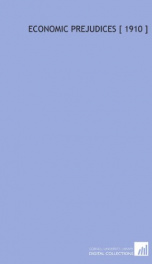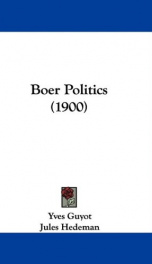socialistic fallacies

Purchase of this book includes free trial access to www.million-books.com where you can read more than a million books for free. This is an OCR edition with typos. Excerpt from book: CHAPTER I Saint Simon French socialistic formulaeSpiritual power according to Saint SimonThe National and anti-National parties The parableProductive societyPolitical error Producers versus consumersIndustrial liberty "The caravan." The exploitation of man by man Saint Simon's theocracySacerdotalism and SecularismEnfantin as Pope; Industrial feudalism Declaration of Count JaubertSlaves of industry Genesis of Socialistic conceptions from 1830 to 1848. Let us pass from these monotonous Utopias, condemned as they are by experiences which are as constant as they are cruel. There now appear the Socialists with scientific pretensions, of whom France presents a lavish supply. Why then should we scorn them ? Are they not French formulae which we find at the root of all these recent foreign conceptions? "The land belongs to no one and its fruits to all," says Rousseau in 1753. Are the rules of Morelly's "Code de la Nature" so far removed from actual schemes. The works of Saint Simon from 1808 to 1825 disclose a strange medley of religious survivals, scientific aspirations, and profound insight into the future. He adopts the old conception of Gregory VII. by proposing to organise two powers, the one spiritual, composed of the philosophers and artists, the other temporal, but this temporal power must be devoted to industry, so that when Le Play at a later date proposes to constitute the industrial chiefs the "authorities of society," he is adopting Saint Simon's idea in another form. Saint Simon divided the nation into two parts, a national and an anti-national. The former is composed of those who perform useful labour, direct this labour or employ their capital in it. Theanti-national party is composed of those who consume but do not produce, of those whose labou...
Info about the book
Author:
Series:
Unknown
ASIN:
B008JF8X98
Rating:
4/5 (2)Your rating:
0/5
Languge:
English
Users who have this book
Users who want this book
What readers are saying
What do you think? Write your own comment on this book!
write a commentif you like socialistic fallacies try:
Other books by this author
Do you want to exchange books? It’s EASY!
Get registered and find other users who want to give their favourite books to good hands!





